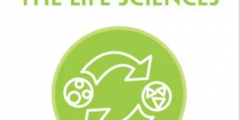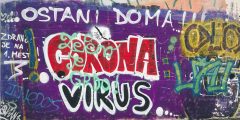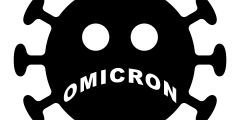The dance of creation and the music of the stars
July 29, 2022
Everybody will now have seen pictures of the cosmos beamed down to earth by the James Webb Space Telescope (JWST). These images provoked admiration, awe and wonder – they were indeed sublime. In this post won’t explore these cosmic images themselves but some of the language that was used to talk about them. Deep field …
Gene drive in the press: Between responsible research and responsible communication
June 17, 2022
Gene drive is a controversial genetic engineering technique that allows scientists to modify genes so that they quickly spread through a population without following the typical rules of heredity; this can include genes that are of no benefit to the plant or animal involved. Research into gene drives has accelerated since 2015 when another new …
The sky is falling and the trees are crying: Reflections on extreme weather
May 6, 2022
For some weeks now, I wanted to write something about ‘rain bombs’, a relatively new weather/climate phenomenon and metaphor – but I didn’t get round to it. Then, last week, when I sat down to write, thoughts about strong rain were displaced by thoughts about fire and heat. In the end I decided to write …
Understanding metaphors in the life sciences – a book review
April 29, 2022
I recently wrote a review of a fascinating little book, Understanding Metaphors in the Life Sciences, by Andrew Reynolds. It appeared as part of the rather excellent series Understanding Life, published by Cambridge University Press and should be read in conjunction with another book in the series by Kostas Kampourakis entitled Understanding Genes, which came …
Covid metaphors: Three chapters and a special issue
April 22, 2022
When the pandemic began and I listened in to the chatter on the news, I started to think about the metaphors people used to talk about this devastating global event. I wrote quite a few blog posts on language, communication and metaphors. I also began various more academic activities which led to a special issue …
Covid metaphors: Around the world in eight articles
April 8, 2022
When the Covid-19 pandemic began in 2020, Martin Döring (Institute of Geography, University of Hamburg) and I (Institute for Science and Society, University of Nottingham) began to assemble and then edit articles dealing with its metaphorical framing around the world (not the whole world, of course!). Covid-19 killed millions of people and caused huge distress …
Omicron: From Frankenstein to Hurricane
April 1, 2022
When threatened by anything from AIDs to zoonoses, we unconsciously use war metaphors and natural force metaphors (storms, tsunamis, fires, avalanches, volcanoes etc.). We can also use more consciously created metaphors, such as Frankenstein (created in the 1990s). Such old and new metaphors help us understand and mitigate old and new risks and threats. War …
Seeing the world as Ukraine
March 25, 2022
Humans have a profound ability to see something as something else. This enables us to create metaphors, mind and, in my view, consciousness. As the psychologist and philosopher of science Rom Harré once said: “You need an ‘as if’ to look at the world; you need an ‘as if’ to explain the world.” (p.c.) When …
Gene drives and metaphors
January 21, 2022
I have been writing about developments in the biosciences for twenty years. In that time, I have covered a wide variety of topics, such as cloning, genomics, the human genome project, the microbiome project, faecal microbial transplants, synthetic biology, epigenetics, genome editing and now gene drive. I was lucky enough to get many reflections on …
Pandemics, time and learning
December 31, 2021
I was reading a thought-provoking article by Katherine J. Wu, Ed Yong and Sarah Zhang in The Atlantic, entitled “Omicron is our Past Pandemic Mistakes on Fast-Forward”. As a metaphor-collector, I loved the first paragraph – which was all about speed: “With Omicron, everything is sped up. The new variant is spreading fast and far. …
Subscribe by email
About this blog
This blog promotes discussion of topics related to the research programme 'Making Science Public: Challenges and Opportunities'. Our purpose is not to 'make science public'. Instead, we want to study the opportunities that have emerged for science to be more openly practiced and debated, but also the challenges posed by making science public or by promoting the making public of science as a solution to a variety of problems in society and in politics.
This blog will report on these and other issues related to the Leverhulme funded research programme: Making Science Public: Challenges and Opportunities
Useful links
Recent Posts
- Climate change and climate discourse: A dual disintegration
- Erving Goffman: Memories, method and metaphors
- Participation at the core: AI, ELSI and community engagement
- Understanding computational hermeneutics: Making meaning between the past and the present
- AI winter and AI bubble: Historical and metaphorical reflections
 MSP bookmarks
MSP bookmarks
- Twitter May 8, 2017
- Social innovations in Europe #RRI November 3, 2015
- Harvey Graff, the undisciplinarian September 20, 2015
- Replacing Pesticides With Genetics August 31, 2015
- Addressing hazardous chemicals in the circular economy August 25, 2015
Categories
- antibiotics
- anticipatory governance
- artifical intelligence
- big data
- biotechnology
- citizen science
- Climate Change
- Climate Politics
- co-production
- coronavirus
- Creationism
- Definition of Science
- designer babies
- disease
- disease
- engineering
- epigenetics
- Food Security
- Food sovereignty
- gene drive
- genomics
- GM Food
- GMOs
- history of science
- Hype
- images and visualisations
- imaginaries
- Immigration
- Impact
- infectious diseases
- innovation
- interdisciplinarity
- Knowledge Society
- Language
- Markets
- Metaphors
- microbiome
- neoliberalism
- Neuroscience
- open access
- Personal Reflection
- Politics
- Public education
- public engagement with science
- public needs
- public participation
- public policy
- public service
- publics
- regulatory science
- Religion
- Republican Party
- research impact
- responsible innovation
- responsive research
- Richard Dawkins
- risk
- Scepticism
- Science
- Science and Government
- science and politics
- Science and Songs
- science communication
- Science Communication
- Science Fiction
- Science Policy
- Social science
- sociology
- space
- space exploration
- synthetic biology
- transparency
- Trust
- Uncategorized
- Uncertainty
- visualisation
- wonder










